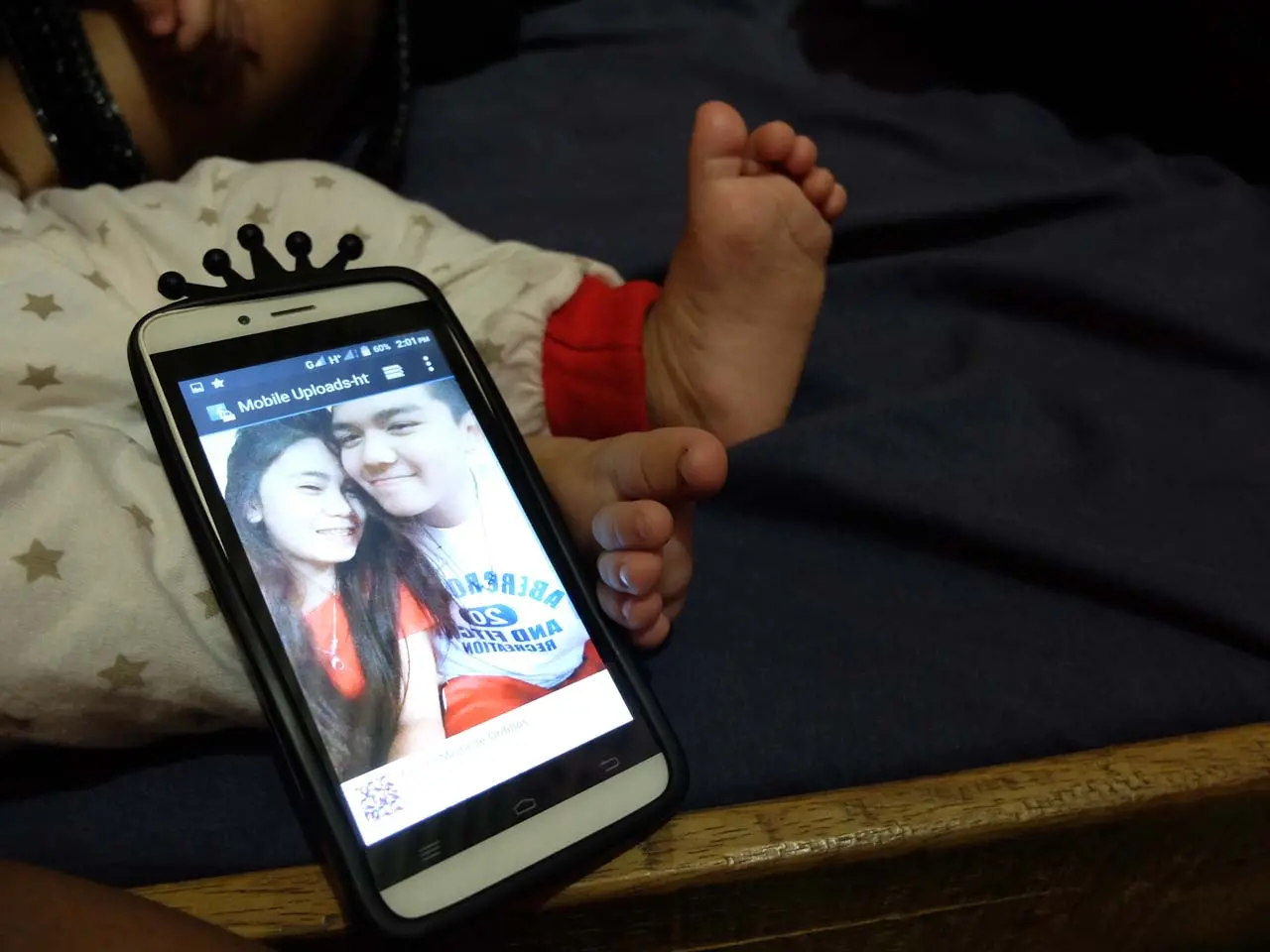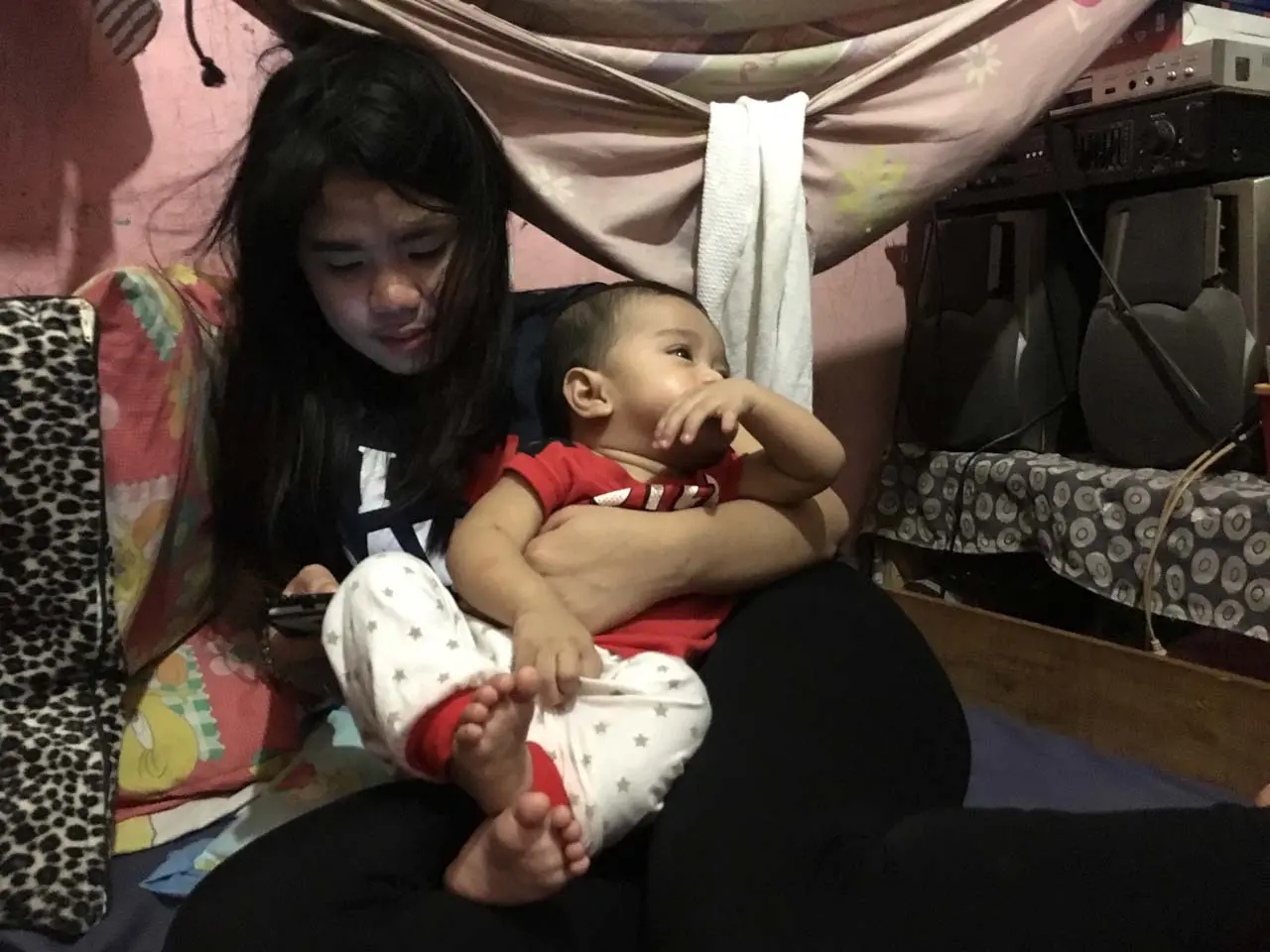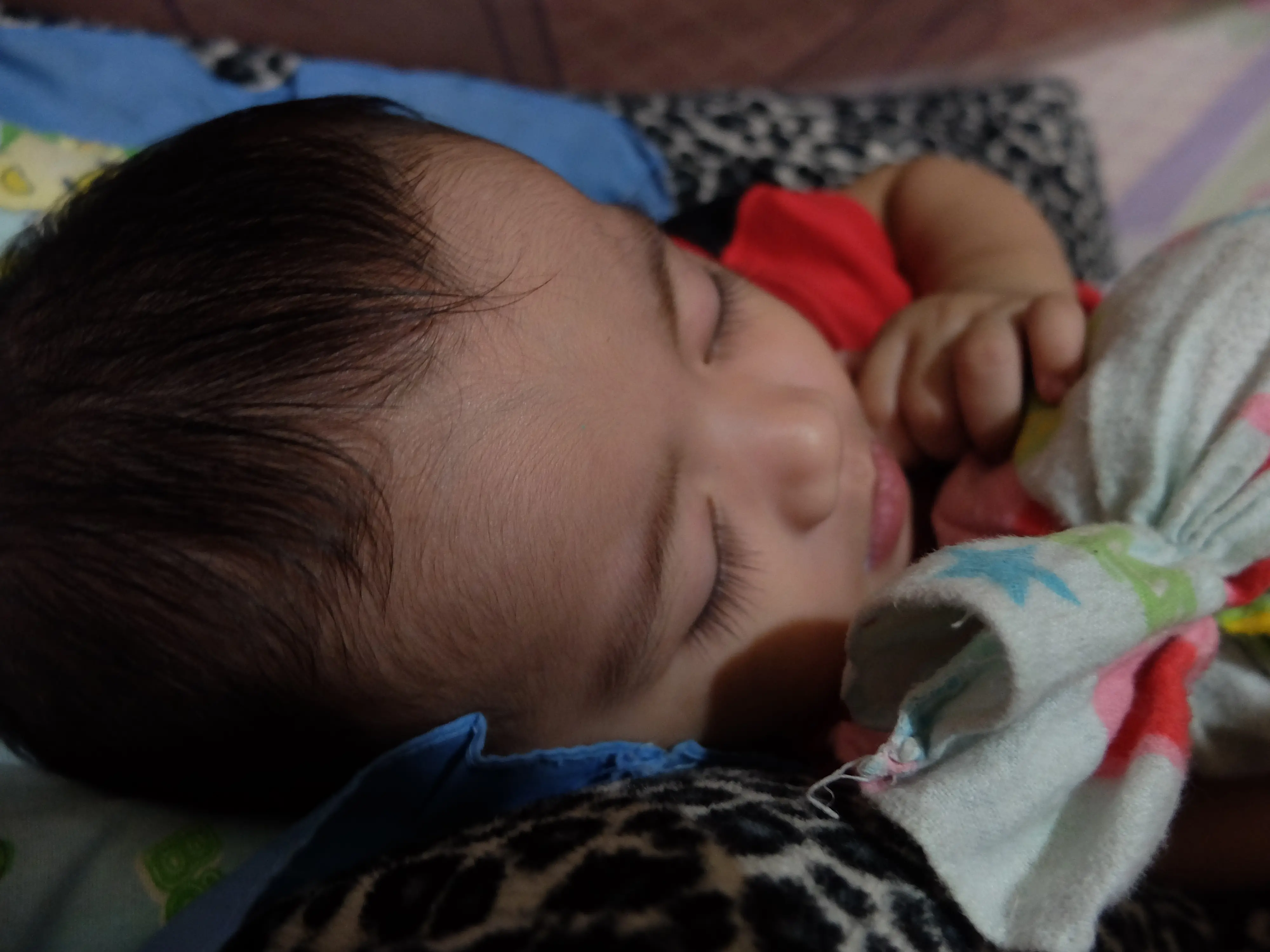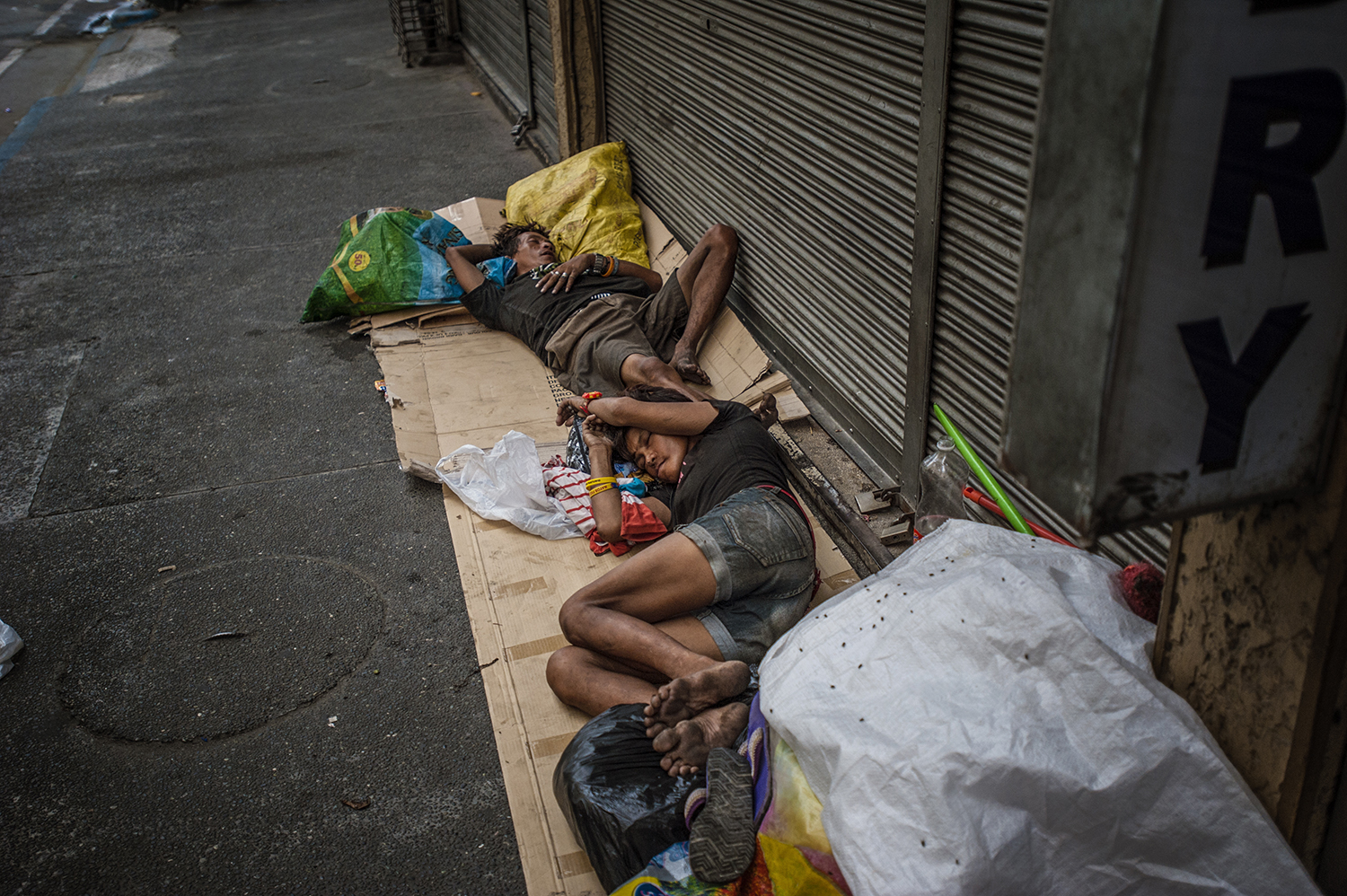Jazmine and Toto were sleeping with their month-old daughter, Hazel, between them when the masked men kicked in the flimsy door of their patchwork home. Two men pulled Toto by the hair and dragged him outside. The other two held a gun to Jazmine’s head. If she wanted to live, she would stay out of it. There was a petty theft at the fishport earlier that day and the men claimed Toto did it. Now, they said menancingly, he was going to pay. The last thing Jazmine heard before the gunshots was Toto scream.
Jocelyn knew Alan was peddling drugs. The whole neighborhood knew. But he took her in when she was pregnant with another man’s child. He said it didn’t matter. He promised to love both her and her child. They were planning to leave, there had been too many killings in the neighborhood. It was getting dangerous. They needed to lie low for a while. They had just finished packing when Alan said he was going to go out for a beer. It was the neighbors who told her Alan had been shot.

As a nonprofit journalism organization, we depend on your support to fund more than 170 reporting projects every year on critical global and local issues. Donate any amount today to become a Pulitzer Center Champion and receive exclusive benefits!

Hide’s mom and her boyfriend rented out their tiny shanty to shooters and users for a few minutes at a time; just so they could get a quick high. Since Duterte’s crackdown on drugs, the P10 or so they got for rent didn’t seem worth it, but “it was still something.” Hide and his wife Michel weren’t supposed to spend the night there that evening. Michel had barely begun to show and she had just turned 5 months. They could get an ultrasound and know the gender of their baby. Hide’s mom was excited at the prospect of being a grandmother and asked to go with them.
When the men came banging their door, threatening to break it down, Hide’s mom stalled so her boyfriend could escape. It enraged the men when they couldn’t find him. It messed up their nightly target. But Hide was there. The men lunged for him and tried to kick Michel. He stood protectively between them and Michel. “Wag po yan, asawa ko yan. Buntis sya!” (Not her, sir. That’s my wife. She is pregnant.)
His mom didn’t think that the men would hurt Hide. She shoved his school ID in their faces, scooped up his school uniform to prove he was a student and like a mad woman begged them to spare the life of an innocent student. It didn’t matter. Someone had to die that night. That night it was Hide.
Jazmine, Jocelyn, and Michel are among the thousands widowed by Duterte’s drug war.
They did not ask for Duterte’s drug war. They didn’t even vote for him.
Jazmine is 16. Jocelyn is 14. Michel is 17. They aren’t even old enough to vote.
Teen pregnancy collides with the war on drugs
Soaring teen pregnancy, most common in urban poor communities, is colliding with drug-related killings that target mostly poor young men.
Every day more than 500 Filipino teenaged girls become mothers. The country has the highest teen pregnancy rate in the region.

Young women like Jazmine, Jocelyn, and Michel barely know how to be mothers, and now they have to contend with being widows.
Their lack of education limits them in trying to get jobs. Even if they could find a job, it is hard to find employers willing to hire a minor.
A new relationship becomes a way to survive. Jocelyn went back to sex work and found a new boyfriend. Jazmine got back together with the biological father of her daughter, Hazel. When she and Toto started living together, the biological father was in jail and had only recently gotten out.
Michel is evasive about the relationship she had after Hide.
Though they are already mothers, the current Reproductive Health Law prohibits them from getting birth control from public health clinics without parental consent.
An already difficult life as a teen mother is further complicated by being a teen widow and living with the stigma of a deceased husband labeled as someone who deserved to die.

No case for justice
Toto’s family does not know who to bring charges against, and until now they live in fear. The masked men know where they live. They even came back to Toto’s wake, revving their bikes and taunting mourners. “They were like vultures. Making sure my son was dead,” Toto’s mother, Dolores, told me.
Angsty, feisty, and now very bitter Jocelyn does not get much support from her parents. Alan was much older than her at 32 and she doesn’t consider his friends people she can go to.
Only Michel and Mitos, Hide’s mother, have filed charges against 13 Caloocan police officers who directly or indirectly had a hand in Hide’s death.
The Commission on Human Rights (CHR) released a resolution in June 2017 finding the 13 Caloocan police officers guilty of human rights violations that included: arbitrary deprivation of life, violation of the right to life, murder and planting of evidence.
An excerpt in the resolution reads: “The police officers who conducted the operation also deliberately violated the constitutional right to life of the accused when they, without due process of law, killed victim Hideyoshi Kawata which resulted in instantaneous death. Respondents’ counter affidavit show no evidence of violent resistance on the part of the victim during the operation which would at least justify his killing.”
The 13 Caloocan police officers include:
- PS 1 Waldo Bontogon
- SPO4 Bernardo Bautista
- PO3 Adrian Magbalot
- PO3 Harold Natividad
- PO3 Carlo Hernandez
- PO3 Pepito Agabin
- PO3 Cesar Tolentino
- PO2 Fernando Usita
- PO1 Jollie Tacanay
- PO1 Michael Borja
- PO1 Muktar Muhamad
- PO1 Zosimo Cortez
- PO1 Mary Rosie Orasa
The resolution is set to be forwarded to the ombudsman for filing of criminal and administrative charges against the 13 Caloocan police. Financial assistance is ordered to be paid out to Hide’s surviving heirs.
There are no statistics or studies on how many young teen mothers have been made into widows by the Duterte administration’s drug war. But as interventions for both teen pregnancy and extrajudicial killings are slow to come by, it is certain that there will be many more young women like Jazmine, Jocelyn, and Michel.









